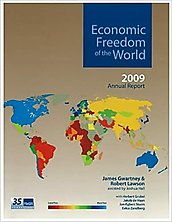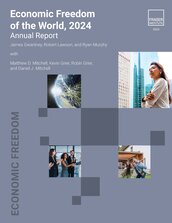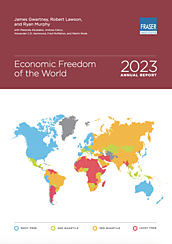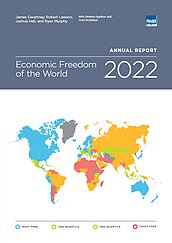The short-term response of governments to the global economic downturn will almost surely reduce economic freedom, but history shows that this need not be the case over a longer time frame. In new research published in this year?s report, Jakob de Haan, Jan-Egbert Sturm, and Eelco Zandberg show that several countries that have experienced financial crises have moved toward greater economic freedom in subsequent years. The impact on economic freedom depends on what we learn from the crisis. Will we move toward institutions and policies more consistent with economic freedom? Or will we politicize, micromanage, and expand the size and role of government? The route that is chosen matters because higher levels of economic freedom are strongly related to greater prosperity and human well-being.
This year’s report notes that economic freedom remains on the rise. The average economic freedom score rose from 5.55 (out of 10) in 1980 to 6.70 in the most recent year for which data are available. Of the 103 nations with chain-linked scores going back to 1980, 92 saw an improved score and 11 saw a decrease. In this year?s index, Hong Kong retains the highest rating for economic freedom, 8.97 out of 10, followed by Singapore, New Zealand, Switzerland, Chile, the United States, Ireland, Canada, Australia, and the United Kingdom.




